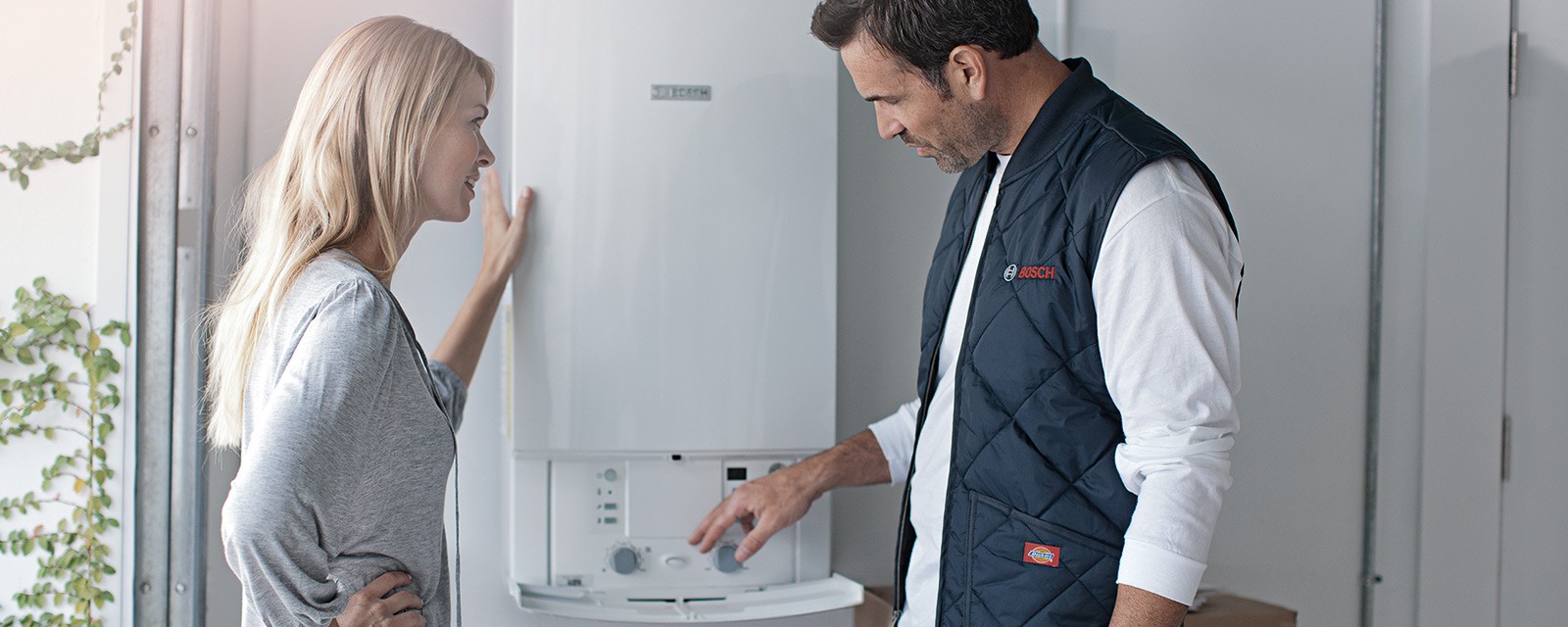
Why Homeowners Love Condensing Boilers
(And So Should You)
Despite the summer heat, it is not too early for your business to plan for boiler season. As a contractor, you have two main options for installation: condensing or non-condensing boilers.
We would like to share some advantages of installing condensing boilers, as well as the residential market trends we are observing!
Conserve Energy and Money

First and foremost, condensing boilers are highly efficient. By converting water vapor condensation into heat, condensing boilers recycle waste gas and deliver 95% energy efficiency. (In contrast, non-condensing boilers average 83% efficiency.) They also use 13% less fuel than non-condensing boilers.
It is a win-win for homeowners: they get plenty of heating while also decreasing their carbon footprint. In addition to heating, combi condensing boilers provide hot water, satisfying two major energy uses in the home at once.
Homeowners are also likely to save money on their gas bills and be eligible for energy rebates and tax credits. For example, the new Bosch Singular Combi Boiler can help them save up to $2,400 through local and federal energy rebate programs.
Save Time on Installation
Condensing boilers benefit contractors as well. We can explain why in two words: easy installation. There are a couple of reasons for this:

Venting is cheaper: Rather than having to use expensive metal venting, as you would for a non-condensing boiler, condensing boilers are vented with plastic (PVC) pipes. The plastic pipes can be terminated through a side wall and are much cheaper to install.
Condensing boilers are lighter: No one likes seeing a big old box on the floor by the chimney. With condensing boilers, however, contractors have several placement options that are more attractive for homeowners and easier to install. Because condensing boilers are so lightweight, they can either hang on the wall or sit on the floor and are more compact than non-condensing boilers. Installers can make a condensing boiler work in a variety of locations throughout the house, whereas non-condensing boilers have limited installation options due to their size.
Let’s put this size difference into perspective. The Singular Combi Boiler, one of the lightest boilers on the market, weighs 79 lbs. Compare that to the average cast-iron boiler, which clocks in at more than 700 lbs. The question is this: would you and your team rather lift, carry, and install a system the size of a large dog…or a piano?
Meet the Demand for Condensing Boilers

Simply put, the demand exists and shows no signs of slowing. Between 2015 and 2020, our market research team calculated the average yearly growth rate for product lines across the heating industry.
Below, you can see how consumer interest in condensing and combi condensing boilers increased dramatically during this timeframe.
Based on this data, condensing boilers—especially combi boilers—are the fastest growing segment in the market.
| Product | 2015-2020 Compound Annual Growth Rate |
|---|---|
| Condensing boilers | +6.8% |
| Combi condensing boilers | +24.3% |
Condensing Boilers from Bosch
Bosch offers a line of condensing boilers that can help you meet your customers’ needs for energy-efficient products that will save them money in the long run.
- Singular Combi Boiler:
Provides efficient, dependable home heating and up to 7.7 gallons per minute of domestic hot water production.
Learn more - Greenstar Boiler:
Delivers comfortable heating and domestic hot water and is the world’s best-selling residential boiler system.
Learn more - Buderus GB162:
Capable of achieving ultra-high efficiency levels of up to 96%.
Learn more